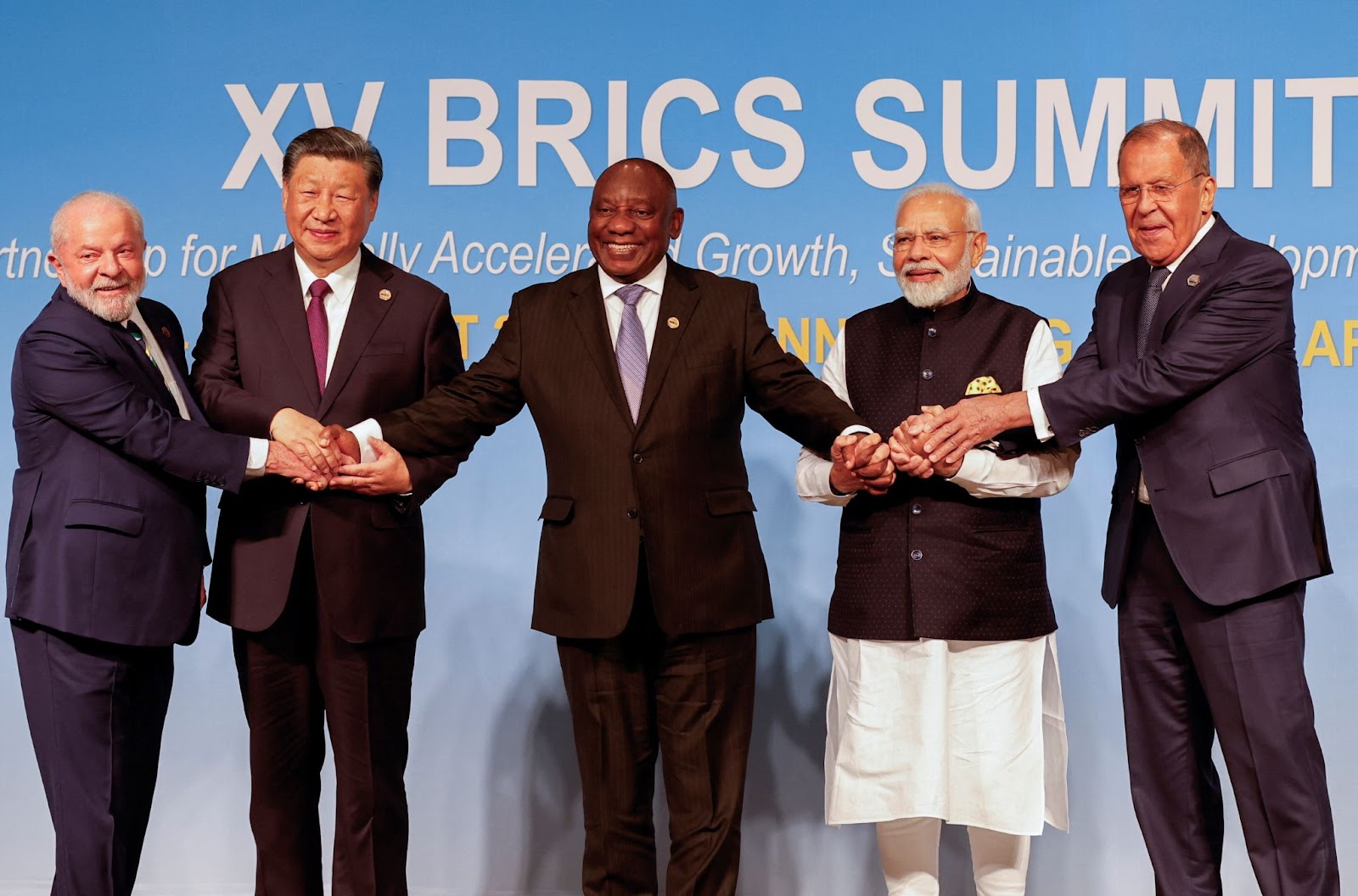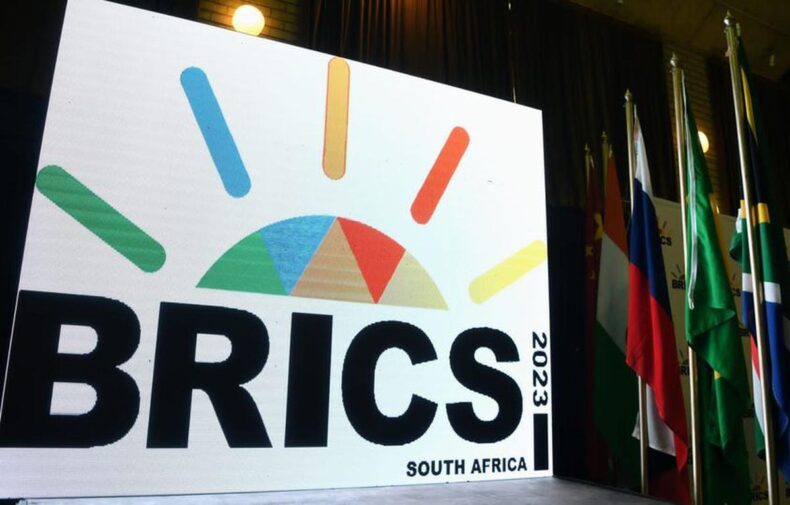
During the BRICS (Brazil, Russia, India, China & South Africa) Leaders retreat held in Johannesburg, India stood in support of expanding the BRICS family, a notion also endorsed by China and Russia as a countermeasure against Western influence.
This theme dominated the three-day summit’s discussions. Prime Minister Narendra Modi articulated specific criteria for entry into BRICS, including the exclusion of countries under international sanctions, which ruled out Iran and Venezuela. Notably, PM Modi expressed hope for backing from member states regarding India’s proposal to include the African Union (AU) as a permanent G20 member and efforts to address Global South concerns while advocating for BRICS expansion. This proposal was presented during the summit in Delhi, where PM Modi outlined five recommendations to bolster intra-BRICS cooperation, including the establishment of a BRICS space exploration cooperative.
PM Modi’s Vision and Initiative
Hosted by South African President Cyril Ramaphosa, the summit saw PM Modi affirming India’s resolute backing for expanding BRICS membership and propelling consensus. Reflecting on BRICS’s evolution since its inception, Modi redefined BRICS as an acronym signifying “Breaking barriers, Revitalising economies, Inspiring innovation, Creating opportunities, and Shaping the future.” The Indian Prime Minister proposed policies related to railway research networks, MSMEs, and start-up collaborations, with notable strides in these domains. Privately, Modi engaged with President Ramaphosa to discuss bilateral relations, shared viewpoints on global and regional matters, and explored avenues for amplifying the Global South’s voice. The two leaders also deliberated on coordinated efforts within multilateral organizations and India’s G20 presidency, which received full-fledged support from Ramaphosa.
Diverse Membership Interest and Western Engagement
As China’s President Xi Jinping championed BRICS expansion to counter Western dominance, India and Brazil simultaneously forged stronger ties with the West. Over 40 nations, including candidates as varied as Iran and Argentina, demonstrated interest in joining BRICS, attracted by the promise of reshaping the global order and addressing perceived imbalances. While some, like Jake Sullivan, a White House national security advisor, questioned BRICS’s potential threat to Western hegemony due to its consensus challenges, Werner Hoyer, the head of the European Investment Bank, cautioned Western governments about losing trust in the Global South unless they ramped up assistance efforts for less developed nations.
Implications and Summit Conclusion
The summit witnessed diverse perspectives on BRICS expansion, with India’s endorsement and China’s and Russia’s proactive engagement to counterbalance Western influence. PM Modi’s vision for a more inclusive and impactful BRICS was echoed in discussions revolving around cooperative policies, innovative collaborations, and developmental initiatives. While debates continue regarding BRICS’s potential as a challenger to Western dominance, the summit also underscored the interest of numerous nations in joining the bloc. As the summit concluded, the attention shifted to the final day’s meetings with delegations from potential candidates, each driven by the aspiration to recalibrate the global order and provide a more equitable platform for nations hailing from the Global South.













